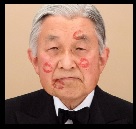About 570,000 households, or 11.3 percent, in Tokyo did not submit response sheets for the national census in October last year, according to the Internal Affairs and Communications Ministry. The rates in eight areas in central and western Tokyo exceeded 20 percent, casting serious doubt on the trustworthiness of the national census. The lower rates were partly because census workers could not contact a sharply increasing number of residents. The ministry also assumed it was because of people overreacting to concerns about protecting personal information. It is the basic premise of the national census that all people living in the nation are covered. The ministry is scheduled to release the failure rates in each area late this month. Ministry officials voiced concern that the sharply lower collection rates may damage the trustworthiness of data, such as population, in the national census.
According to the Tokyo metropolitan government, Chuo Ward recorded the highest failure rate at 30.3 percent among Tokyo's 23 wards and municipalities. It was followed by 29.9 percent in Machida, in western Tokyo; 25.5 percent in Shibuya Ward; 25.2 percent in Shinagawa Ward; and 23.7 percent in Shinjuku Ward. In the previous national census in 2000, no area recorded a failure rate above 20 percent and the figure for the entire Tokyo area was 5.9 percent. According to the interim results of the census released by the ministry in March, the failure rate for the nation was 4.1 percent, compared with 1.7 percent in the 2000 census. The rates in central Tokyo were remarkably high, ministry officials said.
The metropolitan government concluded that interviews by census workers have been more difficult because of the increase in condominiums with automatically locking doors, single households and working couples, as well as people's higher consciousness about crime prevention. In Chuo Ward, the number of residents in their 30s increased by more than 10,000 between 1999 and January this year. Most of the newcomers live in condominiums. Also, a remarkable number of residents refused the census due to misconceptions regarding the law protecting personal information, which was enacted in April last year. When census workers cannot collect response sheets, they are obliged to obtain basic information about households from neighbors or other sources. Though census workers are authorized to ask for the name of the head of the household, the number of persons who live there, and their gender, caretakers of condominiums or nearby residents refused to cooperate in many cases, in order to protect personal information.
In those cases, local government officials provided the missed data using information in the Basic Resident Register files. Data obtained in this way was less accurate than that obtained through census sheets as some households had failed to renew their resident registration after moving to other municipalities. Under the Statistics Law, residents of Japan must take part in the national census every five years, with the data collected exempt from the law protecting personal information. Those who refuse to respond to the census face criminal punishment--up to six months in prison or a fine of up to 100,000 yen.
The trustworthiness of the national census is extremely important for central and local governments because the information is used to decide ways of distributing tax revenue from the central government to local governments, the number of Diet members elected from each constituency, and as basic data for policy decisions. Shocked by the lower collection rates, the ministry has asked an expert panel to consider measures to reform the national census, to be drafted by the end of July.
| Hot Topics | |
|---|---|
Japan Census 2005
68 posts
• Page 3 of 3 • 1, 2, 3
Yomiuri: Households in the capital fail to submit national census information
-

Mulboyne - Posts: 18608
- Joined: Thu May 06, 2004 1:39 pm
- Location: London
Yomiuri: Fewer people responding to government polls
The government has started reviewing ways to increase the response rate of government-run public opinion surveys, which has sharply dropped recently...The response rate was about 70 percent as recently as two to three years ago. This rate fell below 60 percent once the Personal Information Protection Law was enacted in April 2005...A February survey on the Self-Defense Forces and national defense could entice only 55.2 percent ...In a survey on social awareness held in the same month, the response rate was a paltry 50.7 percent, the lowest recorded response rate...
...According to the Cabinet Office, pollsters have had difficulty in reaching would-be respondents because of an increase in the number of condominiums with self-locking entrances in urban areas. The office also pointed out the sudden increase of such cases as people suspected the survey was a ruse or doubted it was really being conducted by the government...
-

Mulboyne - Posts: 18608
- Joined: Thu May 06, 2004 1:39 pm
- Location: London
Mulboyne wrote:Chuo Ward recorded the highest failure rate at 30.3 percent among Tokyo's 23 wards and municipalities.http://www.yomiuri.co.jp/dy/national/20060505TDY02003.htm
I guess I am responsible for that part of the statistic. When the census form arrived last year I took it to my office and asked my co-workers if and how to fill it out. They told me to just throw it away. No explanation, nothing. Just a casual, "aah just throw it away". Seriously though, don't they already have the basic census info already with the ward/city office?
Alcohol, Tobacco & Firearms should be the name of a store, not a government agency.
-

nullpointer - Maezumo
- Posts: 619
- Joined: Fri Apr 16, 2004 10:41 am
- Location: Tokyo
Asahi: Big changes planned for census
The government will revise procedures for the national population census to simplify the troublesome process and stem the surging number of people refusing to respond because of privacy concerns, sources said. Currently, government-designated census-takers visit all households to distribute questionnaires and collect the responses after the papers are filled in. But even the surveyors themselves say the current method is exhausting because so many residents refuse to cooperate. To address the problem, the Ministry of Internal Affairs and Communications is considering alternative procedures, such as allowing residents to mail their responses to local governments or to respond to the questionnaire over the Internet. The online respondents will be identified by entering a code number printed on the questionnaires. The ministry is also considering criminal charges against those who hinder the survey, including caretakers of condominium buildings who refuse entry to the census-takers, the sources said... Under the Statistics Law, those who refuse to respond to the census can be imprisoned for up to six months or fined a maximum 100,000 yen. However, such penalties have never been imposed because the ministry wants the public to cooperate in the census, not be forced to take part...more...
-

Mulboyne - Posts: 18608
- Joined: Thu May 06, 2004 1:39 pm
- Location: London
Mulboyne wrote:Asahi: Big changes planned for census
If you'll recall, there was a long thread on this with topic with some people becoming very vocal saying they would never respond to the census. Some claimed invasion of the little bit of priivacy FGs have. There were myriad reasons given for not participating and why not to worry about the penalties for not participating.
Now it is over and it would appear that tax revenue allocations to our respective areas of residence will be lost and/or work projections and improvement contracts may not be forthcoming, aren't we happy we dissented!
Taxes and nothing else has changed as a result of our well calculated anti-census campaign and look at everything we gained.
"There are those that learn by reading. Then a few who learn by observation. The rest have to piss on an electric fence and find out for themselves!"- Will Rogers

-

Greji - Posts: 14357
- Joined: Fri Jun 25, 2004 3:00 pm
- Location: Yoshiwara
So... what happened to the Census last year?
What changes happened? Did they get all legalistic on ya? Were the questions just as numerous and more invasive?
- rooboy
- Maezumo
- Posts: 316
- Joined: Fri Feb 03, 2006 2:19 pm
- Location: Laughing about lonely McTojo pretending he's with jukujos
rooboy wrote::p I was out of Japan for 3 months after September, would like to know if the Census was taken.
What changes happened? Did they get all legalistic on ya? Were the questions just as numerous and more invasive?
The population census is conducted every five years, so the next one will be 2010 (next year).
-

TennoChinko - Maezumo
- Posts: 1340
- Joined: Mon Feb 27, 2006 9:33 am
-

Ol Dirty Gaijin - Maezumo
- Posts: 892
- Joined: Sat Jan 10, 2004 4:27 pm
- Location: Sunning by the Sumida
68 posts
• Page 3 of 3 • 1, 2, 3
Who is online
Users browsing this forum: No registered users and 36 guests

